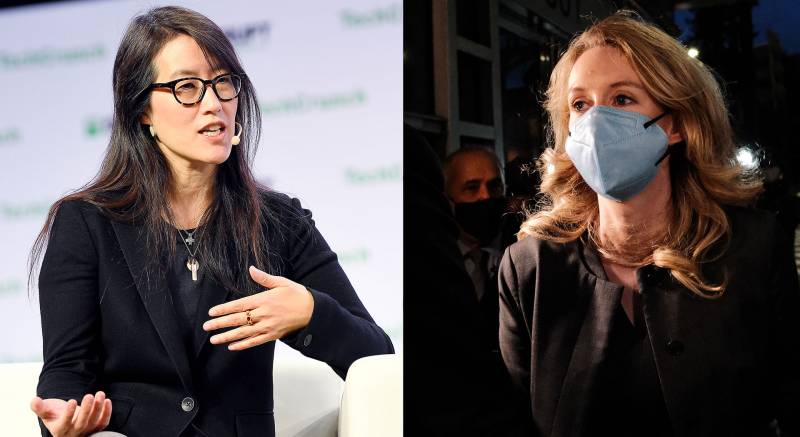Do you think the Holmes trial and the high-profile conviction will affect the barriers of entry for women in the industry?
It’s been interesting to read the feedback from the column that I wrote. So many men were so angry with me, saying things like, “No, look, what she did was completely wrong, and she did something that was totally different from what these other people are doing. She is a terrible evil person!” Because they just don’t want to address the fact that actually we are holding her to a different standard.
It doesn’t mean that she shouldn’t be held accountable. I just think we need to hold more men accountable. But the reaction where people felt so threatened by this callout of sexism in the industry, it makes me feel that for some, it’s going to be an excuse to continue to avoid investing in women. They already don’t invest in women, so that’s not going to be a big change. But it’s just going to be slower to change these folks because they’ve just found another excuse to hold on to the past.
What can the tech and investment industry do to improve the situation for women and give them more of a chance to found and lead companies?
I have been pushing so hard, and through Project Include as well, for people to measure — measure the demographics of who you are investing in. Not just by how many companies have a founder who is a woman or a founder who is Black. Really look at the percentage of founders, and also look at the percentage of dollars going in, because there are many venture capital firms that will invest in [some of these] companies, but not very much money. And the big dollars — you know, the $100 million investments — are still going to white men.
So let’s look for the distribution of dollars and the demographics of the founders and the demographics of the CEOs and really look for: Where are you today? Where do you want to be? And how are you going to get there?
There’s too much of these vanity metrics where you’re looking at … numbers that look better optically but aren’t actually showing the level of the lack of funding [to] different groups. We should be really looking at the real numbers, for venture capital firms, but also for companies. And investors should be looking at those numbers, too, not just in venture capital firms, but the limited partners that invest in venture capital firms. I wish they would hold the firms that they’re putting their money into more accountable.
